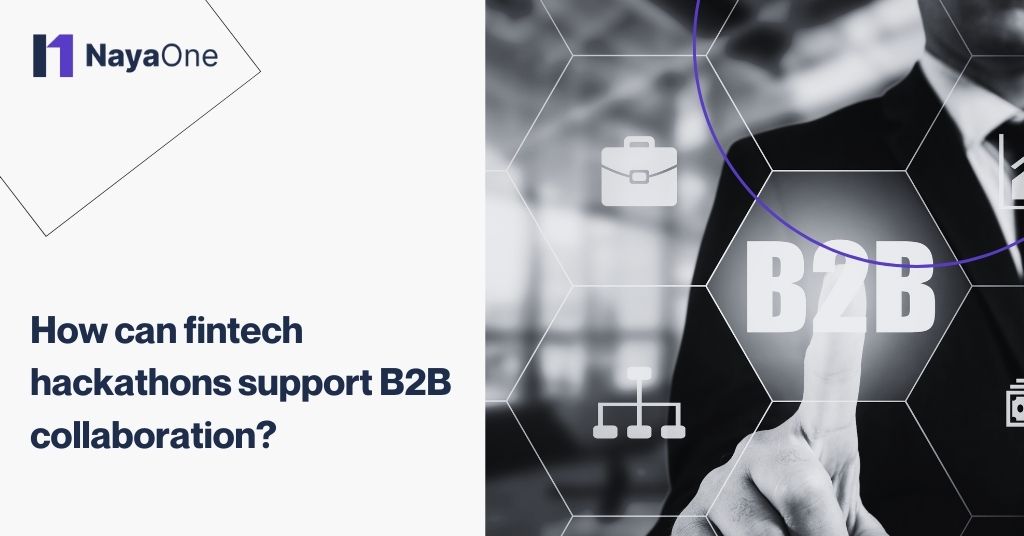What happens when you throw together a bunch of fintech experts, some creative energy, and a ticking clock? You get hackathons—a melting pot of innovation, teamwork, and breakthrough ideas. But beyond the excitement and fast-paced problem-solving, these events are helping businesses forge stronger B2B collaborations. Want to know how? Let’s dive in!
The role of hackathons in driving innovation
A fintech hackathon is typically a time-limited event where teams of developers, designers, and business leaders come together to create innovative solutions for specific challenges. These events often span anywhere from 24 to 72 hours, pushing participants to work under pressure to build prototypes or workable solutions that could transform the industry.
But why are these events so effective in driving innovation? For one, they provide a high-energy environment where fresh ideas can flow freely. Hackathons attract a mix of people, from tech enthusiasts and entrepreneurs to established businesses looking to find new ways to leverage technology. This melting pot of talent and ideas creates the perfect conditions for disruptive solutions.
In addition, hackathons are a great way for companies to experiment with emerging technologies. Whether it’s blockchain, artificial intelligence, or the Internet of Things (IoT), these events serve as a testing ground for new ideas and concepts that might otherwise take much longer to develop. The competitive nature of these events also encourages participants to push their creativity to the limits, often resulting in breakthroughs that might not happen in a traditional work environment.
How hackathons enable B2B collaboration
At first glance, you might think of a hackathon as a series of individual teams battling it out for the top prize. But the truth is, these events are all about collaboration—not just within teams but across entire industries. Here’s how they facilitate B2B partnerships:
1. Bringing together diverse stakeholders
In a fintech hackathon, you’ll find participants from a wide range of industries, including banks, financial institutions, technology providers, and startups. This mix is key to B2B collaboration. For example, a traditional bank might team up with a fintech startup to build a new solution for faster, more secure payments. The combination of established industry knowledge and fresh, innovative ideas from startups creates fertile ground for collaboration.
2. Encouraging open innovation
Hackathons foster an environment of open innovation, where businesses can break down silos and share ideas that lead to better solutions. Often, fintech firms are looking for ways to make their products more interoperable with other systems, and these events provide the perfect space to experiment with these integrations. Banks, payment processors, and technology vendors can collaborate to develop solutions that work across platforms, helping to create a more connected fintech ecosystem.
3. Providing a low-risk testing environment
One of the biggest hurdles to B2B collaboration is the financial and operational risk involved in launching new projects. Hackathons provide a low-risk environment for companies to test their ideas and see if they are viable. For example, a bank can team up with a fintech firm to create a proof of concept (PoC) during the event. If the project proves successful, the two businesses can then explore the potential for a long-term partnership without committing a significant amount of resources upfront.
4. Accelerating product development
Hackathons are the secret weapon for fintech companies looking to speed things up. In just a few days, businesses can collaborate to create products that would traditionally take months. This accelerated development cycle is invaluable for companies aiming to stay competitive and deliver what their customers want, fast.
Challenges and considerations in B2B fintech hackathons
While these events are undeniably beneficial, they’re not without their challenges. Here are a few things to consider before diving into a hackathon:
1. Balancing competition and collaboration
In a hackathon, teams are often competing against each other to build the best solution. However, this can sometimes create tension when participants are also expected to collaborate with others. Companies must find ways to strike the right balance between competition and collaboration to ensure that the event remains productive and fosters meaningful partnerships.
2. Integration with legacy systems
A major challenge when developing fintech solutions is ensuring that new products can integrate with legacy systems. Financial institutions often rely on old technology that doesn’t always work well with newer, more innovative solutions. Hackathons can help solve this problem by allowing businesses to test integrations in a controlled environment, but it’s still a hurdle that needs to be overcome when scaling solutions beyond the event.
3. Scaling beyond the hackathon
While these events are great for generating new ideas, the real challenge is moving from proof-of-concept to real-world implementation. Companies need to have a clear plan for how to scale successful projects into fully-fledged products. This is where strong B2B partnerships come into play, as businesses can pool resources and expertise to make the transition from prototype to market-ready solution.
Key considerations for businesses participating in fintech hackathons
If you’re considering participating in a hackathon platform, here are a few tips to maximise the experience:
- Choose the right hackathon: Not all hackathons are created equal. Make sure you select one that aligns with your business goals and strategic objectives. Whether you’re looking to improve customer experiences, create a new product, or partner with other businesses, the right event can help you achieve your goals.
- Form cross-company teams: Collaboration is key in these events. Consider forming teams with people from other companies to bring diverse perspectives and skills to the table. Working with other businesses can help you think outside the box and discover new ways to approach problems.
- Leverage post-hackathon opportunities: Once the event is over, don’t let the momentum fade. Use the event as a stepping stone for future collaboration. Follow up with potential partners and explore how you can take your prototype to the next level.
Leverage hackathons and boost innovation
Fintech hackathons are more than just competitions—they’re platforms for B2B collaboration, innovation, and rapid product development. Whether you’re a fintech startup, bank, or tech provider, these events open doors to new opportunities.
With NayaOne’s innovation platform, you can collaborate with top fintech companies, test ideas, and bring solutions to market faster. Ready to innovate and stay ahead in finance? NayaOne can help make it happen.





